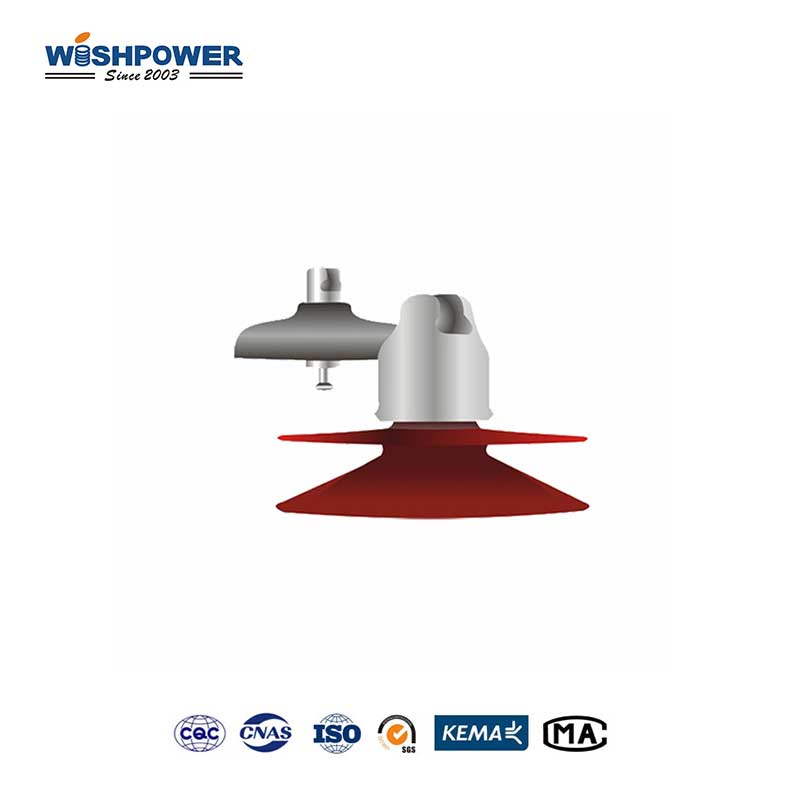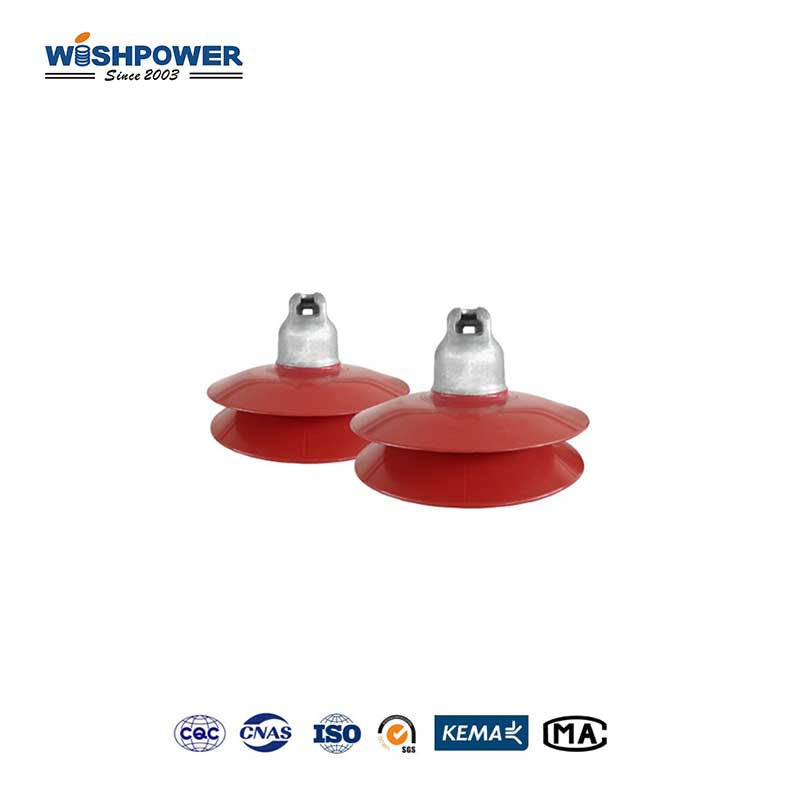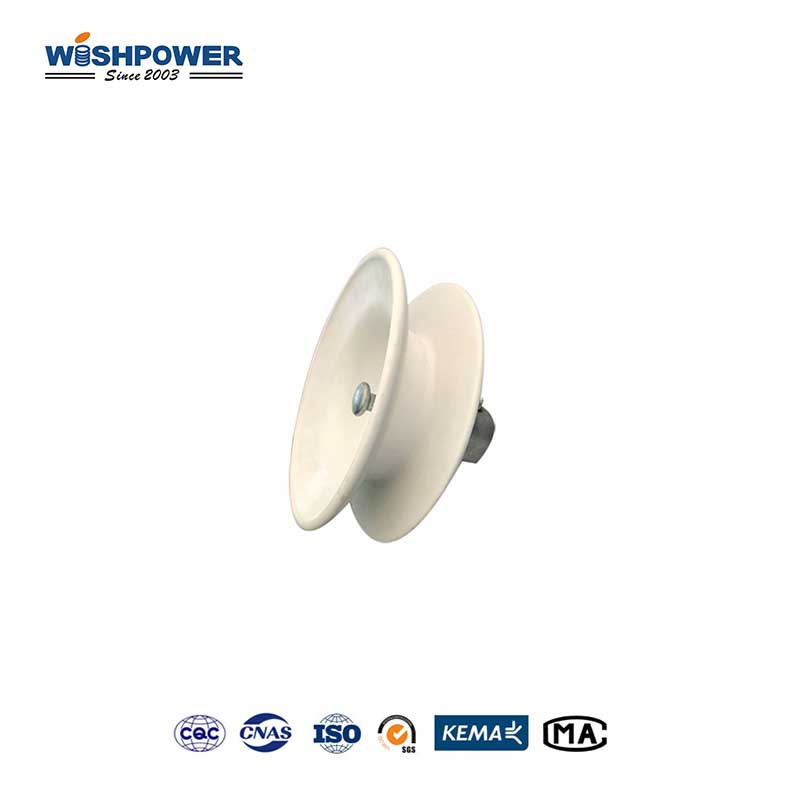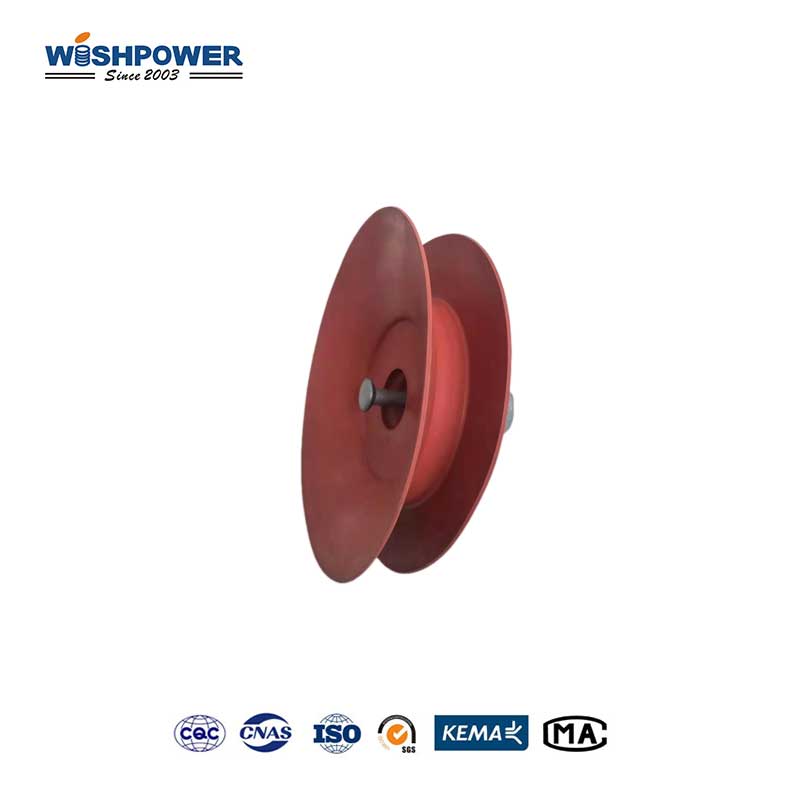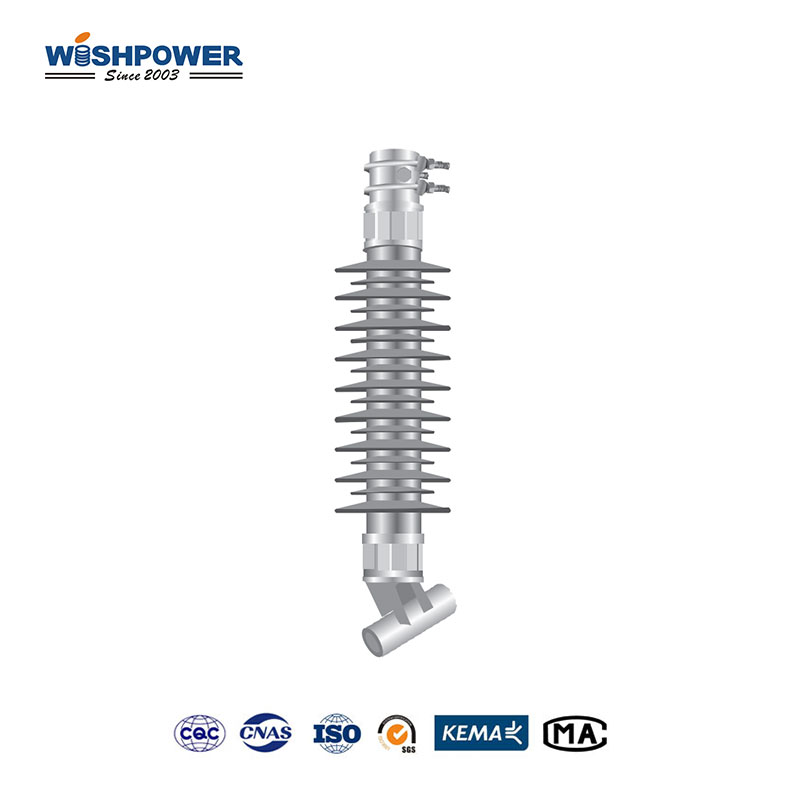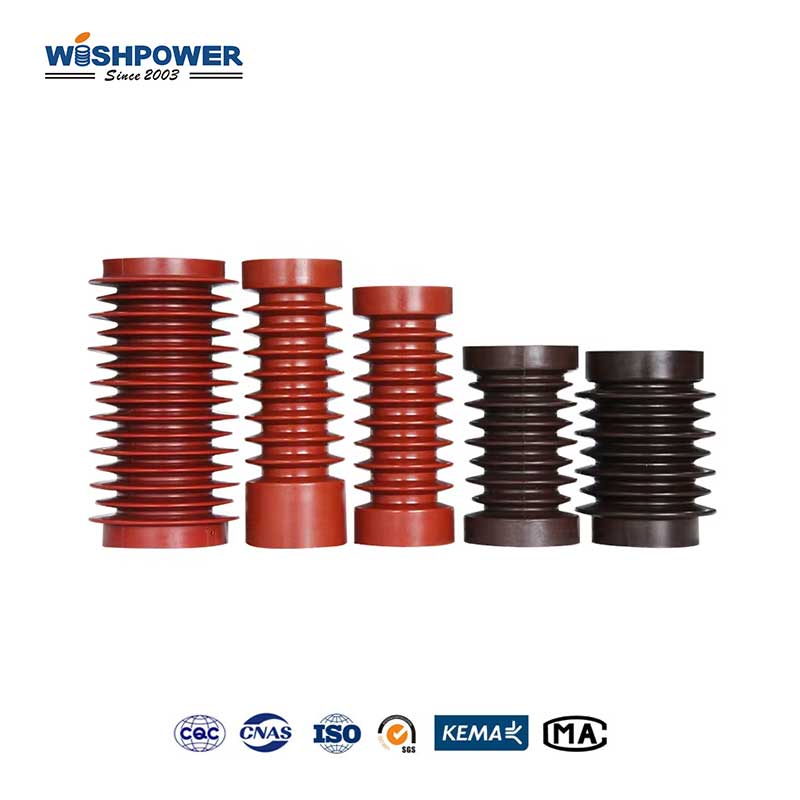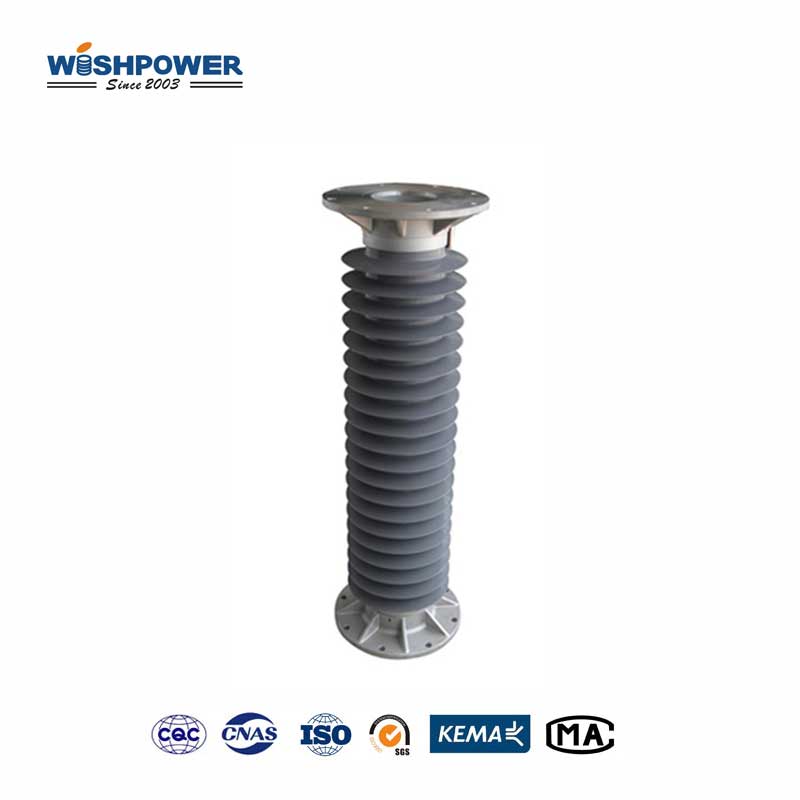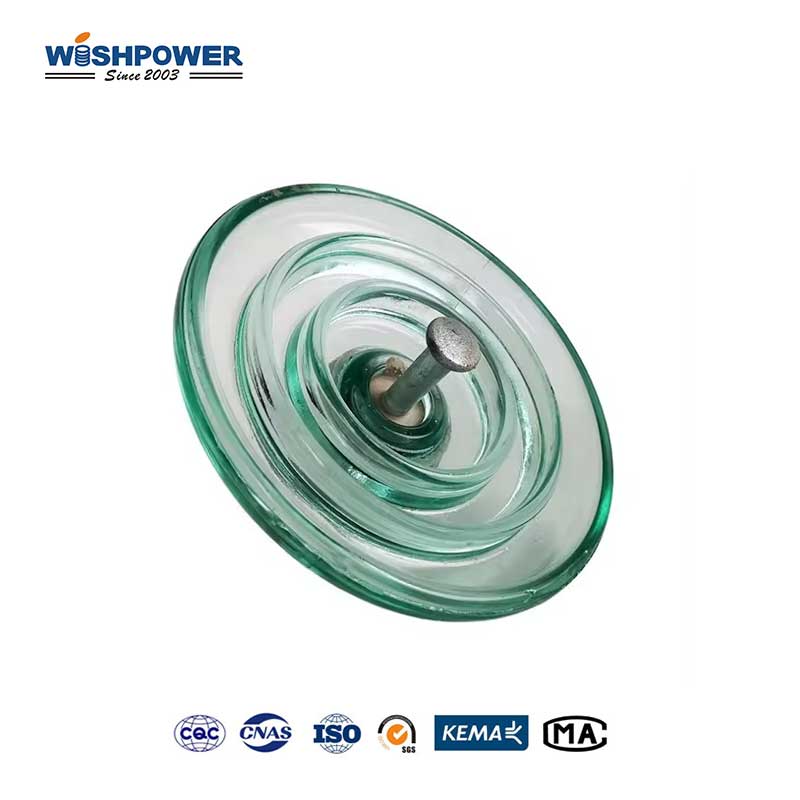Specification
| Product Type |
CS120S16BB16-100/450 |
CS160S20BB20-100/450 |
| Specified Mechanical Tensile Failing Load |
120kN |
160kN |
| Section Length |
146±0.6 mm |
170±0.6 mm |
| Min. Nominal Creepage Distance |
450 mm |
450 mm |
| Lightning lmpulse Withstand Voltage(Peak Value) |
100 kV |
100 kV |
| Power Frequency Withstand Voltage Test-Dry |
80 kV |
80 kV |
| Power Frequency Withstand Voltage Test- Wet |
64 kV |
64 kV |
The table above is just one of our product parameters. If you want more information, please get in touch with info@wishpower.net or download the file below.
What is the Disk-type Suspension Hard Insulator?
The Disk Type Suspension Hard Insulator is a widely employed high-voltage insulator that finds application mainly in overhead transmission and distribution lines for suspension and insulating the conductor. These insulators include individual disk-shaped units used in a string by linking them end to end through the series and they are usually made of porcelain, toughened glass, or composite materials. In this way, it is possible to make disks that supply part of the total insulation needed that enables adjustment by the voltage. The disk design also provides high mechanical strength to allow it to bear the weight of the conductors and any forceful factors such the wind or ice. Also, through suspension, it is possible for the insulator string to vibrate and hence, effectively dissipate mechanical forces which may be detrimental to the conductor, thereby increasing the reliability of the power line. It is quite immune to either electrical or mechanical stresses and is suitable to be used in different climatic situations, as well as to guarantee the secure and efficient transmission of electricity, over a long distance.
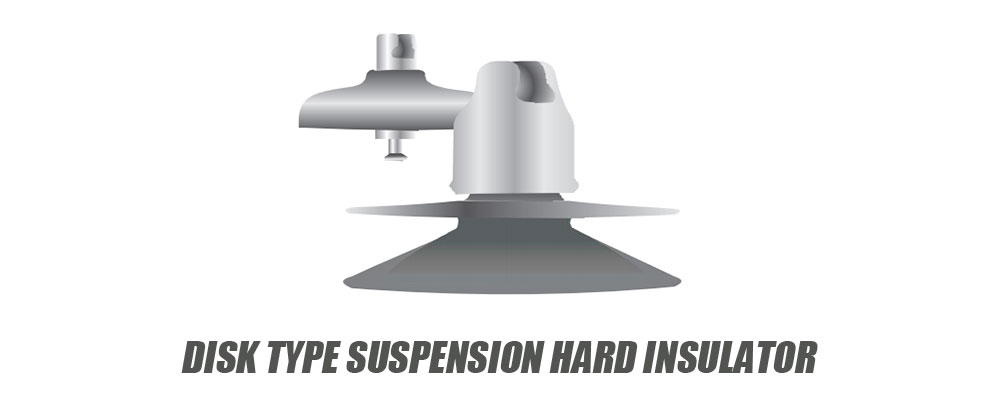
Unique Features
- Modular Design:
Composed of individual disk units that can be connected in series to form an insulator string. This modularity allows for flexible configuration to meet specific voltage requirements.
- High Mechanical Strength:
Designed to support the weight of conductors and withstand environmental stresses such as wind, ice, and mechanical shocks. This makes them suitable for use in overhead transmission lines.
- Swinging Capability:
The suspension arrangement allows the insulator string to swing, which helps absorb mechanical shocks and reduces the risk of conductor damage. This flexibility enhances the reliability of the power line.
- Excellent Electrical Performance:
The disk shape provides a long leakage path, which improves its resistance to electrical flashover, especially in polluted environments. This makes them highly reliable for high-voltage applications.
- Ease of Maintenance:
Most disk-type insulator is constructed in a modular fashion, hence a particular unit is easily replaced from a string without having to deal with the whole string and this saves time and money.
Benefits
- Versatility:
In regards to their construction, they are made up of disks that can be added or removed to allow the configurations of voltage either high or low depending on the requirements of the electrical system.
- Cost-Effectiveness:
As they are long-lasting and do not require much attention, these insulators are practically very economical. Additional maintenance cost is cut by the fact that disks can be replaced individually and not the whole insulator string.
- Enhanced Safety:
They ensure reliability in insulation and mechanical support for the electrical equipment to avoid frequent electrical faults and mishaps affecting both the system and the people.
- Improved System Reliability:
Its capacity to handle mechanical shocks and changes in the environment reduces the chances of getting a line off and out of service hence enhanced power supply.
- High Performance in Polluted Environments:
The design of the suspension disc insulator, with a long leakage path, enhances their performance in areas with high pollution, reducing the likelihood of electrical flashover.
- Flexibility in Installation:
The swinging capability of these insulators allows for easier handling and installation in difficult terrain and varying environmental conditions, making them suitable for a wide range of applications.
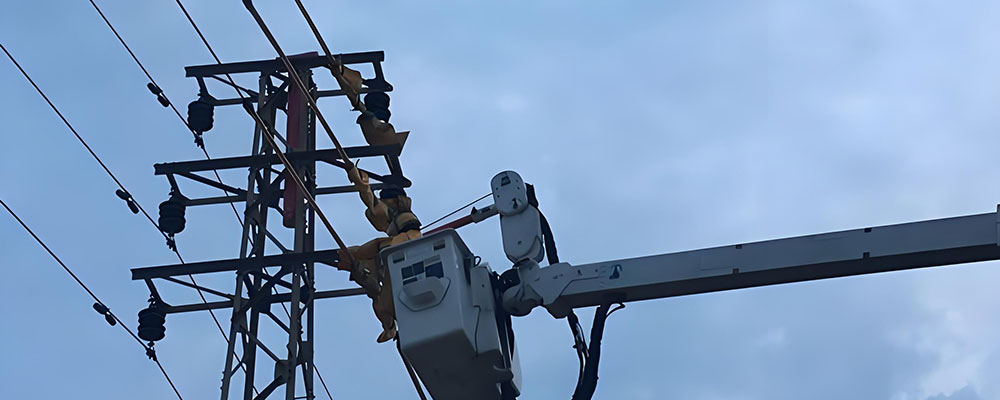
Application
- Power Transmission:
Standard suspension disc insulator is widely employed in overhead power transmission lines for support and insulate conductors to transmit electricity via long spans from the powerhouse to the substation.
- Electric Utilities:
Used by electric utility companies in the distribution structures to transfer electricity from substations to consumers such as residential, commercial, and industrial consumers.
- Renewable Energy:
Used in renewable energy facilities for instance wind power establishments and solar power plants to join and boost electricity produced from renewable resources to the main power system.
- Railway Electrification:
Applied in the electrified railway systems to support and insulate the overhead catenary system that supplies electrical energy to the trains.
- Industrial Facilities:
Used in large industries; factories and plants to provide consistent power for high-voltage electricity needed for the operation of large machines and round-the-clock production lines.
- Mining Operations:
Essential in mines where they support and insulate the high voltage power lines essential in the functioning of mining machinery and structure mostly in extremely detrimental climates.
Exhibition

Certificate

Hot Tags: Disk type Suspension Hard Insulator, Composite Insulator, China, manufacturers, ISO factory, wholesale, KEMA, high quantity, best, price, low to high voltage














